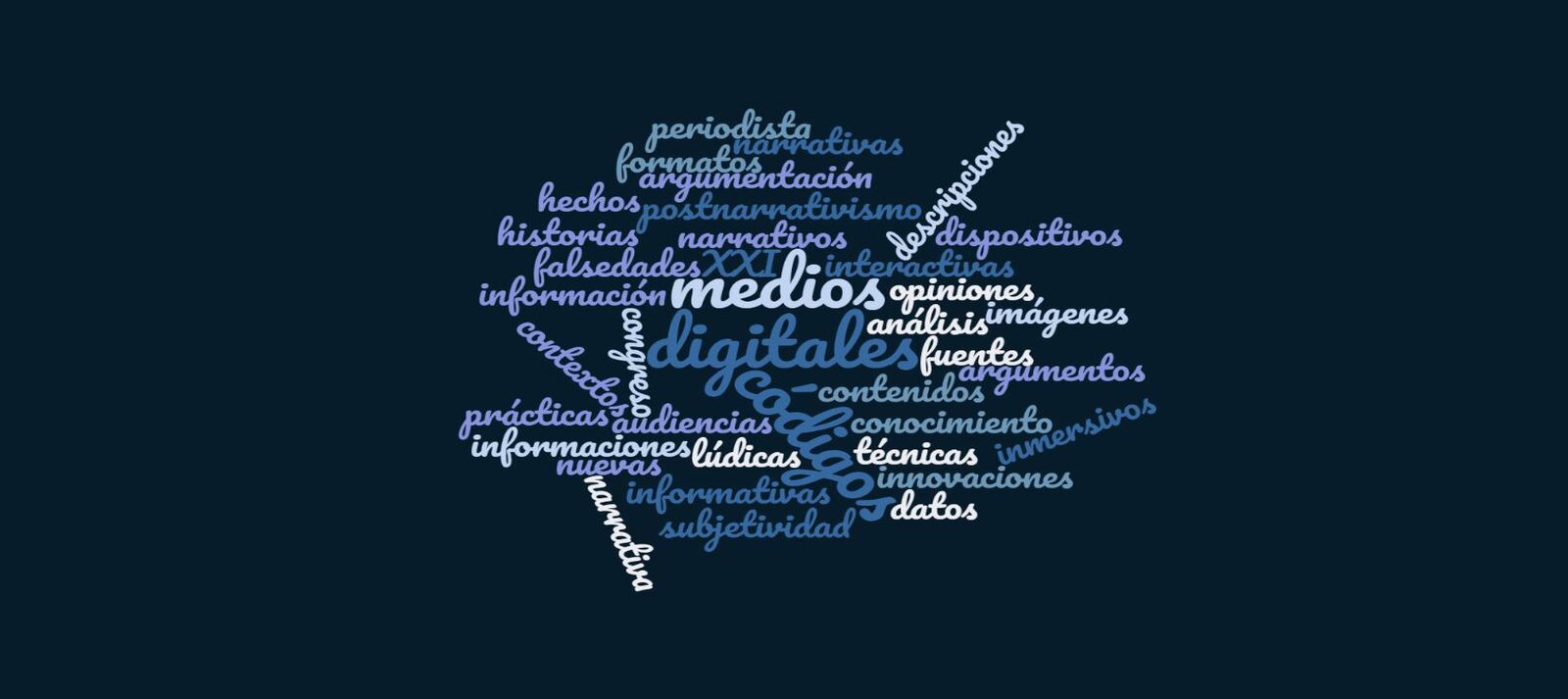Under the notion of new digital narratives, various journalistic experiences are developed. It is a large working territory where information, experimentation, creativity, spectacle or entertainment come together; and where new formats are configured with their corresponding codes, depending on the acceptance and interaction of the users.
Around this type of practices, issues related to the different levels of narrative density that can be put in place and the forms of attention and consumption by audiences are raised. It is also necessary to know and evaluate its technical, ethical, economic, content quality and ease or difficulty aspects in terms of integration into digital media.
In the same way that post-digital qualification is allowed for the current working environment, the very idea of narrativity has begun to be debated. The recent proposals of postnarrativism arise from the need to contain as much as possible both ideological biases and falsehoods when it comes to telling the facts.
The recognition of subjectivity, as something inevitable in the construction of any statement, contrasts with the convenience of a rigorous analysis of
contexts, the strengthening of rational argumentation when explaining facts, the recognition of the author’s manifest and implicit intention and the study of his relationship with sources.
The question is whether these possible new forms of work are acceptable in the current business climate.
You are invited to present papers on the following thematic axes:
- Identity, formats and codes of digital narratives.
- Work processes, technical needs, subjectivity and ethical implications.
- Forms of participation and involvement of users.
- Audiences and economic viability of the new narratives.

